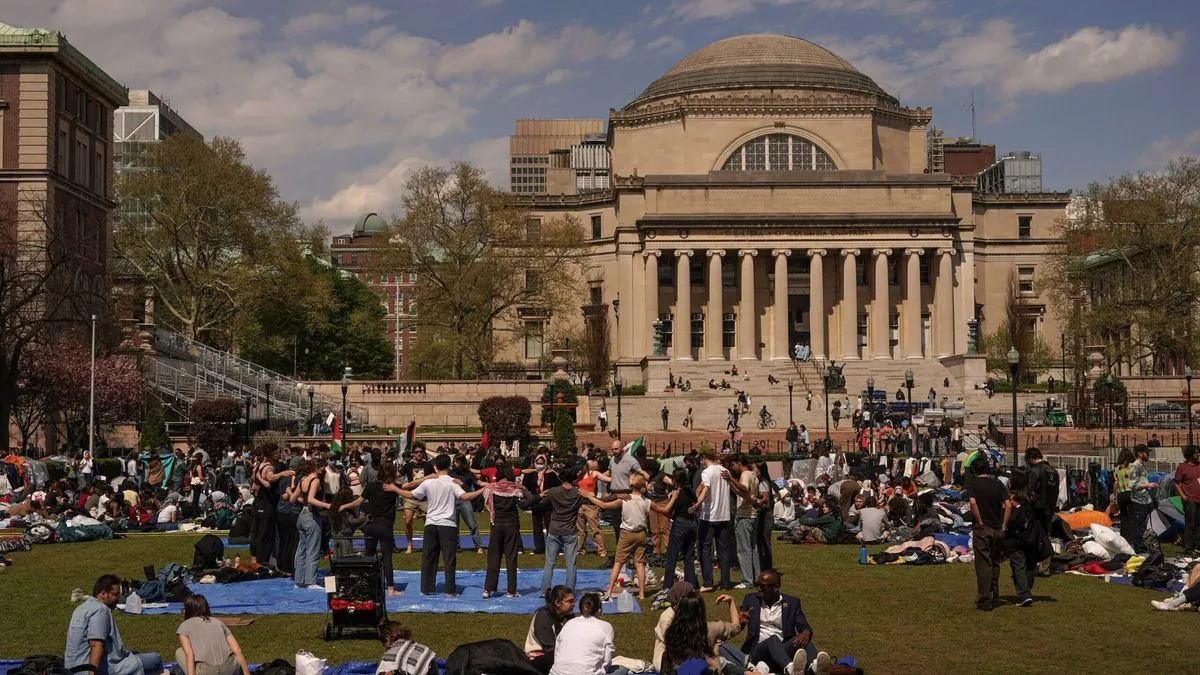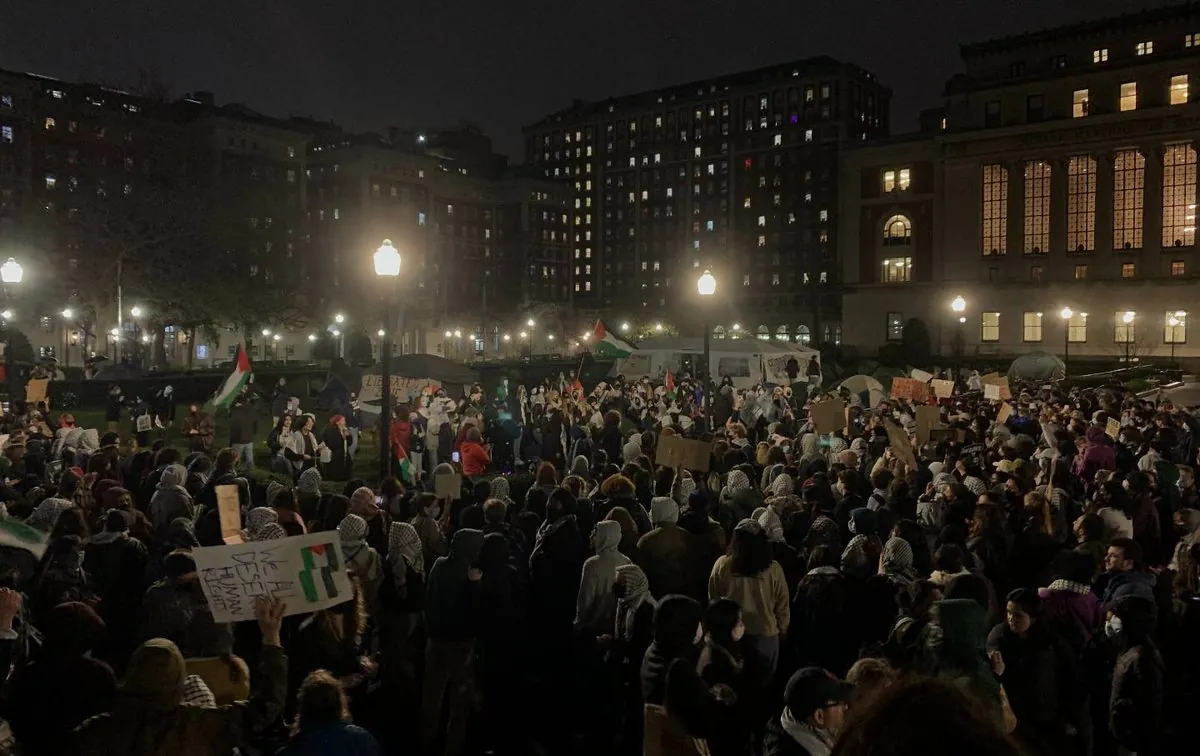Columbia University Allows Most Pro-Palestinian Protesters to Return
Columbia University is permitting the majority of students involved in pro-Palestinian protests to return to campus. This decision follows months of demonstrations and disciplinary actions at the institution.

Columbia University, the oldest institution of higher learning in New York State founded in 1754, has announced that most students who faced disciplinary action for participating in pro-Palestinian protests will be allowed to return to campus. This decision comes in the wake of months of demonstrations at Columbia and other educational institutions across the United States.
The protests, which began in response to Israel's military actions in Gaza and called for an end to U.S. military support for Israel, led to significant upheaval at the university. Last week, Columbia's president, Minouche Shafik, resigned due to the handling of these demonstrations.
According to information released by a Republican-led U.S. congressional panel on August 19, 2024, the majority of students who were arrested or disciplined during the protests will soon be back on campus. Of the 40 students involved in incidents on April 18, 2024, when the university called police to clear protest encampments, only two remain suspended. Similarly, from over 80 students arrested between April 29 and May 1, 2024, just five now face interim suspension without campus access.

The panel, which is investigating allegations of antisemitism on campus, criticized Columbia's actions as insufficient. However, the university's response to the protests has been complex and multifaceted, reflecting its long history of student activism and its role as a center of academic discourse.
"Those students could still face disciplinary action."
It's worth noting that Columbia University, with its 20 schools and colleges, has been at the forefront of many historical events. During World War II, it played a significant role in the Manhattan Project, and its library system is one of the largest in the United States. The university's endowment, valued at $13.3 billion in 2022, has been a point of contention for protesters demanding divestment from Israeli assets.
The protests at Columbia are part of a broader context of demonstrations across U.S. campuses. Some of these protests have seen occasional violence and police interventions to clear encampments. At Columbia's Hamilton Hall, dozens of protesters were arrested, with medical records indicating some suffered serious injuries.
While the university has allowed most students to return, dozens of disciplinary cases are still ongoing. Importantly, the information released shows that Columbia did not charge any protesting students with hate speech, a decision that aligns with the university's commitment to free expression and academic freedom.
The protests at Columbia and other institutions stem from the ongoing conflict between Israel and Palestine. The latest escalation began on October 7, 2023, when Hamas attacked Israel, resulting in 1,200 deaths according to Israeli tallies. Israel's subsequent military actions in Gaza have led to a humanitarian crisis, with over 40,000 casualties reported by the Hamas-run health ministry.
As Columbia University, home to the Pulitzer Prizes since 1917, navigates these challenging times, it continues to uphold its motto: "In lumine Tuo videbimus lumen" (In Thy light shall we see light). The university's response to these protests will likely shape its approach to student activism and free speech for years to come.


































